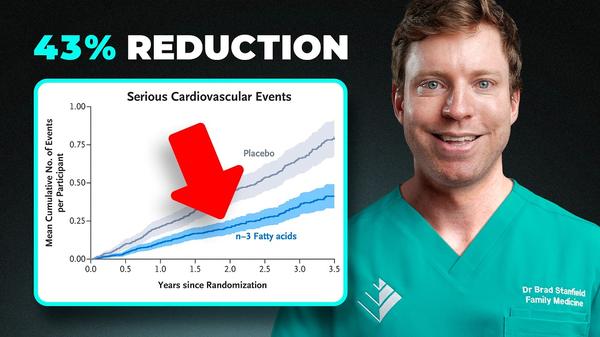
Omega-3 Deficiency: This is the Best Way to Find out if You are (and How to Fix it)
Physionic
Sep 9, 2024
Mindsip insights from this episode:
Utilize Omega-3 Index as a long-term health marker
The Omega-3 Index provides a long-term status of your omega-3 levels over 120 days, much like an HbA1c test does for blood sugar.
Implement low dose omega-3 strategy for health benefits
A lower dose of 1 gram of omega-3s per day can still meaningfully increase your index over time and may avoid the negatives of high-dose supplementation.
Limit high-dose omega-3s to protect heart health
High doses of omega-3s like 4 grams a day can raise your index quickly but may come with unintended consequences for the heart.
Integrate omega-3s into cell membranes for maximum benefit
Omega-3s provide their greatest benefit when integrated into the cell membrane, not just when circulating freely in the blood.
Aim for an omega-3 index of 8% for optimal health
While an Omega-3 Index above 4% is a good start, the ideal target to aim for is 8%.
Understand limitations of standard blood tests for omega-3s
Standard blood plasma tests for omega-3s only reflect your dietary intake from the last week or two, not your long-term cellular health.
Measure Omega-3 Index to assess your omega-3 status
To accurately know your omega-3 status, you should measure your Omega-3 Index, which analyzes the fats within your red blood cell membranes.
More from
Physionic
Dr. Casey Means: Eat like THIS to reduce your Risk of Metabolic Disease!
Ketosis (Fasting/Ketogenic Diet) accelerates Cancer Growth - New Study
Drain your Brain, Protect it from Alzheimer’s Disease
Dr. Casey Means: Stop Ignoring Your Health — Do These 5 Free Tests!
Soda & Cancer Death: The Link Found in Multiple Large Studies













